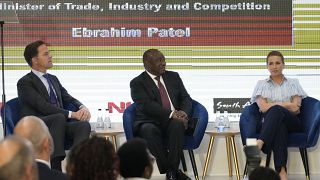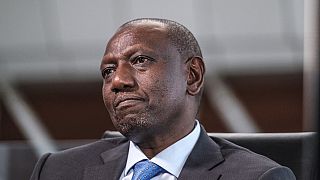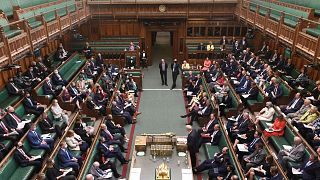United Kingdom
Uganda's veteran President Yoweri Museveni accused Europe on Wednesday of "brazen double standards" towards Africa in its climate and energy policies.
He lashed out at Europe's return to coal-fired power plants in the face of the energy crisis triggered by the war in Ukraine while at the same time telling African nations not to use fossil fuels.
"We will not accept one rule for them and another rule for us," Museveni wrote in a blog published Wednesday that coincides with the UN's COP27 climate summit taking place in the Egyptian resort of Sharm el-Sheikh.
"Europe's failure to meet its climate goals should not be Africa's problem," he added.
Museveni's comments follow warnings from African leaders at COP27 about the damage climate change is already wreaking on the continent.
The UN's Intergovernmental Panel on Climate Change in February warned that tens of millions of Africans face a future marked by drought, disease and displacement due to global heating.
Wealthy nations have failed to provide a pledged $100 billion a year from 2020 to developing nations to help them build resilience and green their economies, reaching just $83 billion according to the UN.
Africa's carbon footprint is the lowest of any continent, accounting for around three percent of global CO2 emissions.
"We will not allow African progress to be the victim of Europe's failure to meet its own climate goals," said Museveni, one of Africa's longest serving leaders.
"It is morally bankrupt for Europeans to expect to take Africa's fossil fuels for their own energy production but refuse to countenance African use of those same fuels for theirs."
Museveni said European nations needed to end their "brazen double-standards" and "hypocrisy", and took aim at what he said were conditions that Western investment in fossil fuels in Africa was possible only for oil and gas that would be sent to Europe.
Earlier this year, France's TotalEnergies and the China National Offshore Oil Corporation signed a $10-billion agreement to develop Ugandan oilfields and ship the crude through a 1,445-kilometre (900-mile) pipeline to a Tanzanian port on the Indian Ocean.
The project, which includes drilling in Murchison Falls, Uganda's largest national park, has run into strong opposition from activists and environmental groups that say it threatens the region's fragile ecosystem and the livelihoods of tens of thousands of people.
The European Parliament in September adopted a resolution calling for the project to be delayed over "rights violations", infuriating Kampala.












01:00
Pix of the Day: July 16, 2025
02:11
Witchcraft and politics: Uganda’s election season sparks supernatural surge
01:07
Only 35% of sustainable development goals on track to meet target, UN says
01:13
Uganda reopens border with M23-held eastern DRC
01:00
Pix of the Day: July 3, 2025
01:22
World will have to learn to live with heatwaves, UN says